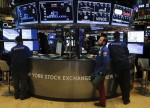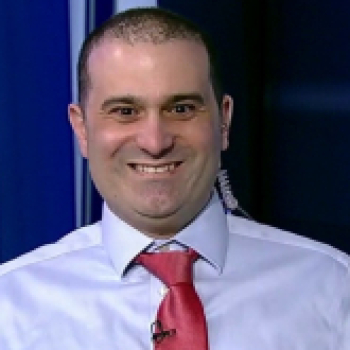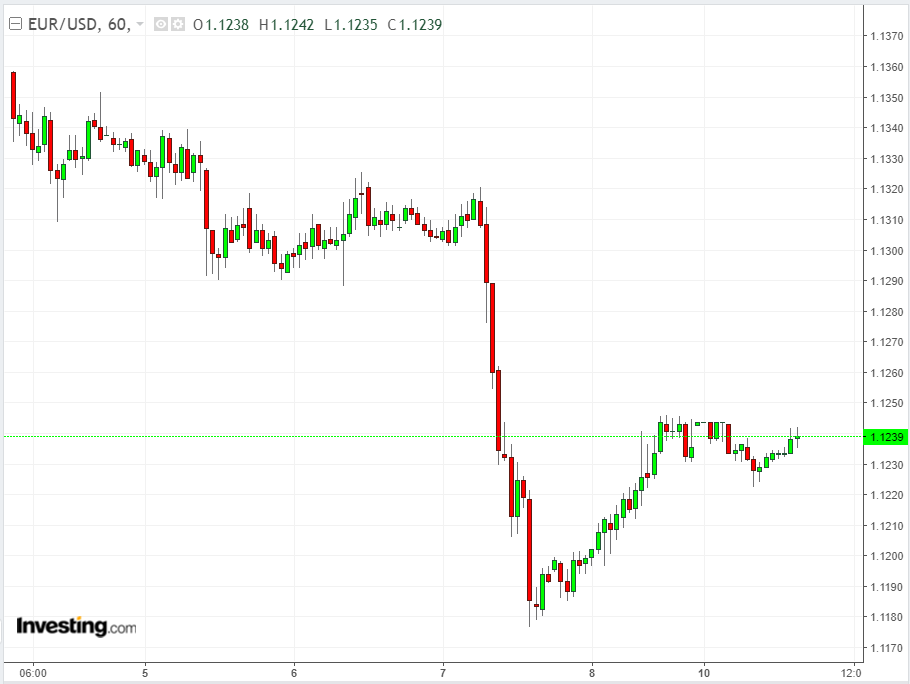
- All Instrument Types
- Indices
- Equities
- ETFs
- Funds
- Commodities
- Currencies
- Crypto
- Bonds
- Certificates
Please try another search

ECB's Preemptive Action Surprising Only In Timing; Edgy Investors React

Just how edgy investors are was evident in the reaction to the European Central Bank's (ECB) actions last week as its mildly surprising moves back toward accommodation raised concerns about economic growth. Indeed, the only thing really surprising about the ECB’s postponement of interest rate hikes until 2020 and reactivation of the targeted long-term refinancing operations (LTRO) was the timing.
Economists across Europe have been steadily lowering growth forecasts for months. On Wednesday, March 6, just one day before the ECB meeting, the OECD slashed its forecast for eurozone growth to 1 percent from 1.8 percent. The new forecasts made it increasingly unlikely the ECB was going to start raising rates in September. Besides, all the ECB ever said was it wouldn’t raise rates before then.
In January, ECB President Mario Draghi had pointedly said that downside risks were increasing and the central bank “stands ready to adjust all of its instruments” to meet its inflation targets. Even at that point, analysts were betting on the TLTROs as the instrument of choice to provide liquidity to select banks.
So the ECB’s lowering of the growth forecast to 1.1 percent from 1.7 percent was just catching up with other predictions across Europe for lower growth. Perhaps the only real surprise was that inflation this year is now expected to be just 1.2 percent, well below the bank’s 2-percent target, instead of 1.6 percent as previously predicted.
In any case, the ECB pulled the trigger somewhat sooner than analysts expected, figuring the central bank would be content this time to just prepare the ground for later action.
The euro fell in reaction to the ECB action. So did yields, not only on euro bonds but on U.S. Treasuries, as U.S. government debt looked more attractive in light of a further postponement of rate increases in Europe. U.S. stocks slumped as well, and a much lower-than-expected gain in U.S. employment announced on Friday exacerbated that trend, until lower prices drew buyers back into the market toward the close.
The ECB’s preemptive action—Draghi bragged that, this time at least, the central bank was “not behind the curve, for sure”—doesn’t answer the question of what will happen with European economic growth. In fact, nothing that happens in Europe will answer that question. Much more depends on how successful China’s efforts to stimulate its economy will be and whether trade disputes will be resolved.
The legitimate worry at this point is that the ECB has used up its tools for stimulating the economy if things go seriously south. Short of reactivating its bond-buying program – a move that cannot be excluded – there is little more the central bank can do if Brexit turns out to be horribly messy and disruptive or if the Chinese stimulus fails to lift European growth. Interest rates are on hold in negative territory and can hardly be lowered and targeted bank liquidity is already programmed in.
With all the talk of how much Brexit could hurt the British economy, too little attention is paid to the impact on the rest of the EU economy. Trade between the EU and Britain is a two-way street. German economists recently calculated a no-deal Brexit could affect 100,000 jobs in Germany, making it the hardest hit of the remaining EU members.
There are, in short, plenty of reasons for investors to be edgy. The market may have overreacted to the ECB action, but who can blame them? Draghi has put up with enough criticism about too little, too late, and he does not want to leave office in October as the ECB president who was behind the curve.
The other consideration as Draghi sings his swan song is that there is no one on the horizon who can come near replacing him now that German central bank president Jens Weidmann is apparently out of the picture. Berlin just reappointed Weidmann to a second eight-year term at the Bundesbank and seems to have put the European Commission president post ahead of the central bank job as the one it wants.
That leaves only François Villeroy de Galhau, the French central banker who doesn’t have nearly the standing of Draghi, to head the ECB. Even worse would be a transitional arrangement with a Finn holding the place for Benoît Coeuré, who cannot move immediately into the spot because his term as ECB executive board member comes to a mandatory close at the end of the year.
Related Articles

The US, Japan, and parts of Europe had a rough week, while China, Germany, France, and the Euro Stoxx 50 stayed steady. Tariffs, central banks, and the war in Ukraine keep...

Last week, we discussed the more extreme levels of bearishness that have gripped the markets as of late. “In other words, while the media scrambled to align reasons with the...

I’m sure this week will be interesting, given the CPI and PPI reports. I’m sure the administration will have plenty of on-again and off-again policy statements about something....
Are you sure you want to block %USER_NAME%?
By doing so, you and %USER_NAME% will not be able to see any of each other's Investing.com's posts.
%USER_NAME% was successfully added to your Block List
Since you’ve just unblocked this person, you must wait 48 hours before renewing the block.
I feel that this comment is:
Thank You!
Your report has been sent to our moderators for review





Add a Comment
We encourage you to use comments to engage with users, share your perspective and ask questions of authors and each other. However, in order to maintain the high level of discourse we’ve all come to value and expect, please keep the following criteria in mind:
Perpetrators of spam or abuse will be deleted from the site and prohibited from future registration at Investing.com’s discretion.